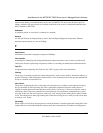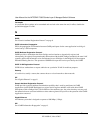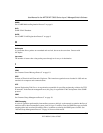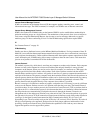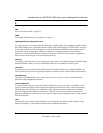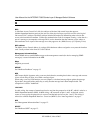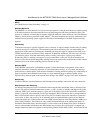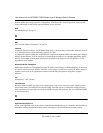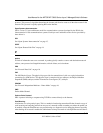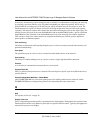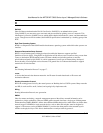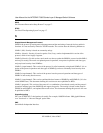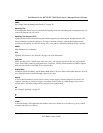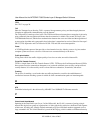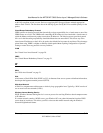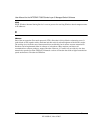
User Manual for the NETGEAR 7300S Series Layer 3 Managed Switch Software
Glossary C-17
202-10088-01, March 2005
R
RADIUS
Short for Remote Authentication Dial-In User Service, RADIUS is an authentication system.
Using RADIUS, you must enter your user name and password before gaining access to a network. This
information is passed to a RADIUS server, which checks that the information is correct, and then authorizes
access. Though not an official standard, the RADIUS specification is maintained by a working group of the
IETF.
Real-Time Operating System
RTOS is a component of the OSAPI module that abstracts operating systems with which other systems can
interface.
Resource Reservation Setup Protocol
RSVP is a new Internet protocol being developed to enable the Internet to support specified
Qualities-of-Service (QoS). Using RSVP, an application will be able to reserve resources along a route from
source to destination. RSVP-enabled routers will then schedule and prioritize packets to meet the
prioritization assigned by QoS. RSVP is a chief component of a new type of Internet being developed,
known broadly as an integrated services Internet. The general idea is to enhance the Internet to support
transmission of real-time data.
RIP
See “Routing Information Protocol” on page 17.
router
A device that forwards data between networks. An IP router forwards data based on IP source and
destination addresses.
Routing Information Protocol
RIP is the routing protocol used by the routed process on Berkeley-derived UNIX systems. Many networks
use RIP; it works well for small, isolated, and topologically simple networks.
RIPng
Routing Information Protocol, new generation.
RMON
Short for remote monitoring, a network management protocol that allows network information to be
gathered at a single workstation. Whereas SNMP gathers network data from a single type of Management
Information Base (MIB), RMON 1 defines nine additional MIBs that provide a much richer set of data about
network usage. For RMON to work, network devices, such as hubs and switches, must be designed to
support it. The newest version of RMON, RMON 2, provides data about traffic at the network layer in
addition to the physical layer. This allows administrators to analyze traffic by protocol.



